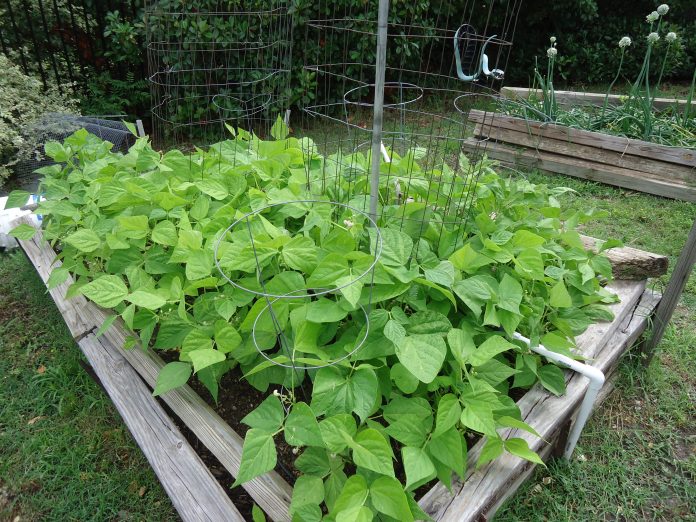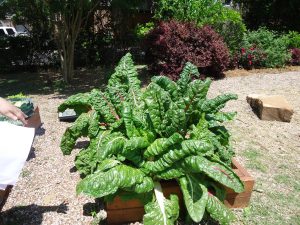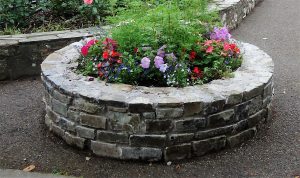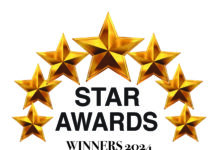
This question came from Roger A. who lives in Forreston, Tx
What are the benefits of having a raised bed instead of planting my vegetable garden in the ground? If I use wood for the border of raised beds, is it safe? Someone told me that the chemicals in the wood would get into my vegetables. Is it safe for my family to eat vegetables grown in a wood container? Planting in the ground is an option, but is the soil going to produce healthy vegetables? I am concerned about the soil in the ground being contaminated, is the reason for using raised beds. Which is the best choice for vegetable gardening?
There are pros and cons for both.
Farmland through the years has been sprayed with (possibly) chemicals that are now considered to be harmful to our environment. A large amount of farm land has been developed into housing districts. It makes it difficult to know what products were used on the soil before it became a housing district. If you are concerned you can have your soil tested. An article written by Ken Doyle (I am adding the web site at the end of this article). “Lead contamination in garden soils” should provide some information on this topic. This was published by the Soil Society of America. The article outlines all the pros and cons of contaminated soil. What I learned from the article regarding leftover contaminants in the soil. After a period, the issue is not a factor unless it was lead- based paint or gasoline.
That does not mean the soil in the ground is healthy. The soil in the ground may need amendments.
Nutrients may be not be available to the plant roots. If you plant in the ground, you should have a soil test before you plant anything. The soil test is a small price to pay for a healthy soil. It is better to add amendments before you plant that to try a correct the deficiency after your plants are established. After you receive the results of your soil test you can amend the soil with any missing nutrients.
Nutrients needed for healthy plants
Plants need certain minerals for growth. Inground or raised beds the soil test will tell you what nutrients are present. The minerals and nutrients we should be concerned about are calcium (Ca), magnesium (Mg), potassium (K), sodium (Na), phosphorous (P), sulfur (S), iron (Fe), copper (Cu), manganese (Mn), boron (B), Zinc (Zn), cobalt (Co), selenium (Se), silicon (Si) and molybdenum (Mo)

Sun and Water
The other main factor that needs to be discusses is sun and water. Depending on the amount of rain that year water may need to add to the garden soil. With normal rainfall, most gardens will need water until established. Once the plants have a good root system water is not needed to produce healthy vegetables.

Raised Beds or Ground Beds
Ask yourself these questions before deciding where your garden beds will be placed.
Is it close to water source? If you do not have water accessible it can be an issue during the heat of the summer. Rainfall may not be enough to keep the plants growing. Raised beds use more water than in ground gardens. You may need to water more than one time a day.
How much sun will the garden receive each day? If plants only get partial sun the crops may not produce vegetables. Instead leaves and blooms will exist rather than the vegetable itself.
What is the best soil for raised beds? You should not take soil from the yard and fill the raised beds. The heavy clay in our area will not nourish the vegetables. It is possible to make your own soil.
The best choice is 60% topsoil. 30% compost. 10% Potting soil (a growing mix that contains peat moss, perlite and/or vermiculite) and may hold water. This is for containers and mixture is nutrients and a loose composition for seed growth.
Weeds are less of an issue in raised beds. The weeds are not eliminated but less of them will find their way into the garden. Raised beds allow you to adjust the height of the bed.
There are pros and cons of each type of garden bed. The most important point for gardening. Start with rich organic soil that contains the nutrients that are need by the plants.
Happy Gardening
CLICK HERE to visit the AgriLife website.
CLICK HERE to read the plant of the week articles.
CLICK HERE to read about heavy metals in your garden soil.
If you have a question about gardening in the North Texas area, send your questions and we will try to provide you with an answer. You can send your question to [email protected]







